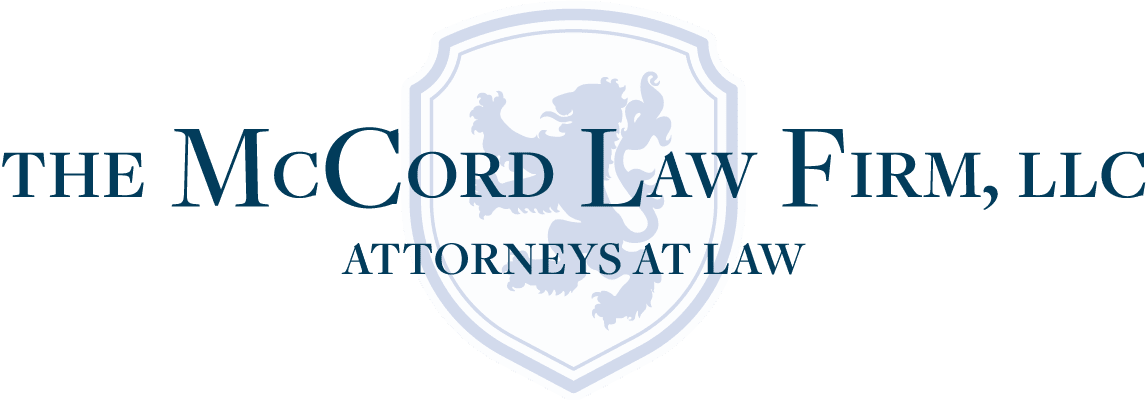South Carolina Probate Administration
Your Family’s Future
Is Our Priority
The assistance of a compassionate, competent attorney can be invaluable for the necessary Probate Administration. The McCord Law Firm, LLC can help you through this often technical and complex process to achieve the proper distribution of your loved one’s property and assets to his or her beneficiaries, as well as help resolve any claims against the estate.
It can be a very traumatic experience when a significant other or close family member passes away. For the person named as Personal Representative, or Executor, of the deceased loved one’s estate, it can feel overwhelming to also be faced with handling post-death affairs such as administering the estate during a time of grief.
The assets of a deceased loved one may have to go through a process called Probate. Assets that are considered probate assets must first be identified as part of the estate, then they must be distributed according to the loved one’s will or by South Carolina Intestacy Statute. Probate provides for the proper transfer of title to these assets.
The Process
What to Expect
If the deceased family member left a will, first the will must be proven valid by law, and then the estate must be administered by the Executor, also known as a Personal Representative. If the person who died did not leave a will, then title will be passed according to the Intestate Laws of South Carolina. The probate process is much more complex if no valid will exists, and even more so if property needing to be sold is present in the estate. However, regardless of whether a will was written or not, all probate assets in the estate must be administered and thus will require your involvement with the probate court.
Engaging with the probate court often involves a considerable amount of time and paperwork. The time needed to finish the probate process depends on the size of the estate, whether there is a valid will, the location of any real property owned, and the complexity of the assets and liabilities contained within the estate. Typically, most estates can be settled in one to two years. If there are any contests against the will or disputes with creditors over the alleged debts of the estate, then there could be further delays and costs.
A quick overview of the probate process typically involves the following steps and duties of a personal representative: filing a petition to appoint a personal representative, notice to all heirs, notice to creditors via publication, inventory and appraisal of the estate assets, payment of estate debts to the correct creditors, selling estate assets, payment of estate taxes, filing deeds of distribution, and filing required estate settlement documents. Typical expenses include personal representative fees, attorney fees, court costs, accounting fees, surety bonds, and appraisal costs.
How We Can Help
At The McCord Law Firm, LLC, we can help executors and personal representatives of estates with their probate administration duties and any other probate issues, including litigation, relating to the death of a loved one. The areas with which we are able to assist you include:
- Administering the Estate – Which includes collecting and managing assets, filing tax returns, and paying taxes and debts.
- Distributing any Assets and Bequests – This includes personal or charitable, as directed as outlined in the will.
Why Choose Us
Seasoned Lawyers. Small Firm Advantage.
At The McCord Law Firm, LLC, we make every effort to earn our client’s trust by listening to the client’s needs, keeping the client up to date, always returning calls, and providing the highest level of legal advocacy.
We would love the chance to talk to you to see how we can assist you with securing a positive future for your family.
Get in Touch
We’d Love to Hear From You
Here at The McCord Law Firm, we care about you and your unique challenges. Even if we’re not able to help you in your exact situation, we’ll always guide you in right direction.



